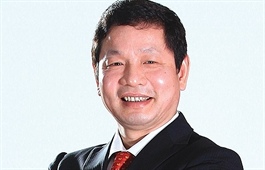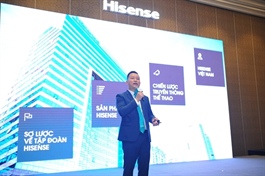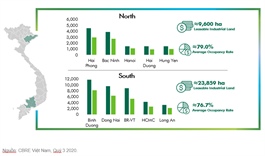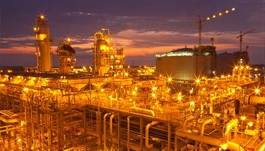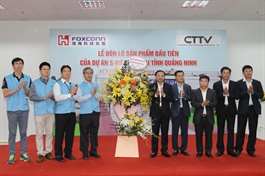Ownership carve-up high on agenda for energy investors
Ownership carve-up high on agenda for energy investors
Energy-focused firms in Vietnam are actively vying to raise capital by tapping into corporate bonds issuance and ownership sharing to potential foreign investors.
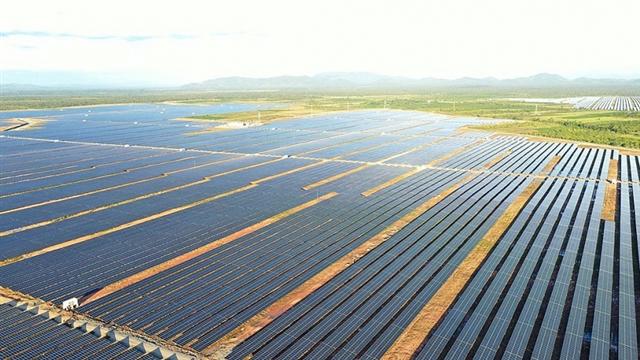
Ownership carve-up high on agenda for energy investors (photo: daklak.gov.vn)
|
Xuan Thien Group’s energy subsidiaries have altogether mobilised funds of over VN13 trillion ($560.75 million) through the bond channel between June and August. At the end of August, these companies had raised more than VND4.9 trillion ($211.36 million) through private placement to invest in the Xuan Thien Ea Sup solar power project in the Central Highlands province of Dak Lak.
Similarly, two member companies have wrapped up an investment of VND3.3 trillion ($142.34 million) for the Xuan Thien Thien Bac solar power project in the south-central province of Ninh Thuan. Meanwhile, Xuan Thien Dak Lak and Son La Energy companies have mobilised over VND2.44 trillion ($105.25 million). Previously, in June, Ea Sub 5 JSC successfully issued bonds to collect VND2.1 trillion ($90.58 million).
In another case, Trung Nam Group, under the auspices of Military Bank (MB), mobilised up to VND6 trillion ($258.8 million) via this debt instrument since the end of 2019, including VND4 trillion ($172.53 million) in the first half of this year.
Other investors like Hoanh Son Group and BCG Group’s energy subsidiaries have collected similar sums via bond issuance.
Most recently, Truong Thanh Group, a new player in the renewable energy market, officially traded 135 million shares on the Ho Chi Minh City Stock Exchange. The group plans to offer 25 million private shares to strategic investors, increasing its charter capital to VND1.6 trillion ($69 million) this year.
According to general director Nguyen Duy Hung, Truong Thanh Group will develop 200MW each year from 2022. The listing of shares will help the company connect with investors and funds, and issue bonds to diversify capital sources.
Experts said investors had been racing to mobilise capital on the corporate bond market by September, when Decree No.81/2020/ND-CP dated July 9 on issuance of corporate bonds came into force with stricter regulations.
Pham Nhu Anh, a member of MB’s board of management, said that under Decree 81 the interval between two issues must be at least six months. Meanwhile, it usually takes 2-3 years to complete development of wind power projects. Therefore, if investors just raise money from bonds, they will have difficulties in ensuring capital adequacy.
On the same note, Vu Bang, member of the Prime Minister’s Economic Advisory Group, said that the Ministry of Finance needs to stimulate the development of the corporate bond market and create favourable conditions for renewable energy companies to deploy this instrument. In particular, companies that have signed bank loan agreements for their energy projects can issue bonds based on capital progress.
Renewable energy investors are looking for new capital sources as bond capital mobilisation and credit capital access remain unfavourable. Ho Ta Tin, chairman of the board at energy developer HBRE Group, said that the company is developing wind power projects on the south-central coast and in the Central Highlands. However, it is still stuck in accessing loans from local banks due to low loan limits and high lending interest rates above 10 per cent annually.
In particular, banks require businesses to have a very high equity ratio of 30-40 per cent, making it difficult to arrange finance for the projects. Meanwhile, foreign banks offer loans with low interest rates of about 4-5 per cent per year. However, it is not easy for domestic investors to access the credit capital as they need the government guarantees.
To ensure the effectiveness and progress of ventures, many wind power investors consider cooperating with overseas investors in the form of transferring shares or a part of the project to access their capital. These investors are keen on many offshore wind power projects in Vietnam and are often willing to invest $1.5-2 billion in such initiatives.
At present, HBRE is teaming up with many local and foreign investors, including from Thailand and France, through share transfers.
The company has mobilised capital for five wind power projects with a total capacity of 1,000MW. Among them, the HBRE Vung Tau offshore wind scheme has a capacity of 500MW, and is slated to be operational in 2025.
Some companies have transferred part of their projects to overseas investors. Nguyen Hoai Bac, chairman of IQLink cum general director of Sunseap Link Solar Power, raised concerns that despite being granted an investment license, investors are not allowed by local authorities to transfer or sell shares of energy projects during the construction period.
Bac argued that financial support from such investors through share purchases will help businesses ease burdens and risks. Therefore, policymakers should adjust the regulations so that companies can transfer part of projects to mobilise capital.
A representative of TPBank told VIR that the lender is very much keen on rolling out sustainable finance offerings as there is a burgeoning demand from the client side.
“TPBank is already working with Bamboo Capital to finance implementation of renewable energy projects, including wind and rooftop solar power, with total capacity of 1.6GW for the 2020-2022 period,” the representative said.



